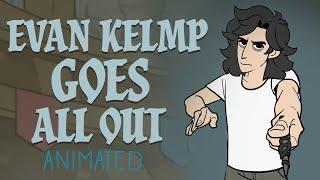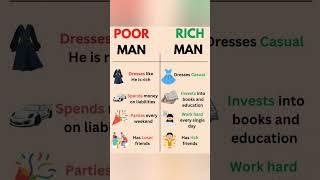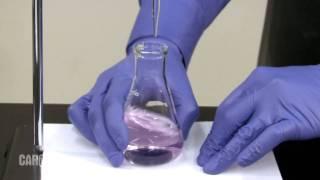
Obsessive Compulsive Disorder (OCD) Kya hai?| Weham aur Wawaso ki Bimari | OCD ka ilaj
Комментарии:

OCD mujhe both extreme level ke hn😞
Ответить
How to treat my OCD ? At home??
Ответить
Mery sath namz me asy hota he or me satisfied ni hoti ky namz puri ki he ya ni bhot arsy se asy ho rha he bus namz me hi asy hota he baqi itna ni he wahm
Ответить
Is ka ly must psychatrist ka pas jy us sa medicine bhe la agr psychiatrist kha to psychologist ka pas jy i am also psychologist i know what patient feel when they become the patient of OCD
Ответить
Obsessive-Compulsive Disorder (OCD) typically involves a combination of psychotherapy, medication, and lifestyle changes. Here's a comprehensive approach:
Psychotherapy
1. *Exposure and Response Prevention (ERP)*: A type of cognitive-behavioral therapy (CBT) that helps individuals confront their fears and anxieties while resisting compulsive behaviors.
2. *Cognitive-Behavioral Therapy (CBT)*: Helps individuals identify and change negative thought patterns and behaviors.
Medications
1. *Selective Serotonin Reuptake Inhibitors (SSRIs)*: Commonly prescribed medications for OCD, such as fluoxetine (Prozac), sertraline (Zoloft), and paroxetine (Paxil).
2. *Serotonin-Norepinephrine Reuptake Inhibitors (SNRIs)*: Medications like venlafaxine (Effexor) and duloxetine (Cymbalta) may also be effective.
Lifestyle Changes
1. *Regular Exercise*: Physical activity can help reduce anxiety and improve mood.
2. *Mindfulness and Relaxation Techniques*: Practices like meditation, deep breathing, and yoga can help manage stress and anxiety.
3. *Sleep Hygiene*: Establishing a consistent sleep schedule and creating a relaxing bedtime routine can improve sleep quality.
4. *Social Support*: Building a strong support network of family, friends, and support groups can help individuals cope with OCD.
Alternative Therapies
1. *Neurofeedback*: A type of biofeedback that helps individuals control their brain activity.
2. *Eye Movement Desensitization and Reprocessing (EMDR)*: A therapy that combines eye movements with talk therapy to process traumatic memories.
Self-Help Strategies
1
[15/01, 1:07 am] Meta AI: Treating Obsessive-Compulsive Disorder (OCD) typically involves a combination of psychotherapy, medication, and lifestyle changes. Here's a comprehensive approach:
Psychotherapy
1. *Exposure and Response Prevention (ERP)*: A type of cognitive-behavioral therapy (CBT) that helps individuals confront their fears and anxieties while resisting compulsive behaviors.
2. *Cognitive-Behavioral Therapy (CBT)*: Helps individuals identify and change negative thought patterns and behaviors.
Medications
1. *Selective Serotonin Reuptake Inhibitors (SSRIs)*: Commonly prescribed medications for OCD, such as fluoxetine (Prozac), sertraline (Zoloft), and paroxetine (Paxil).
2. *Serotonin-Norepinephrine Reuptake Inhibitors (SNRIs)*: Medications like venlafaxine (Effexor) and duloxetine (Cymbalta) may also be effective.
Lifestyle Changes
1. *Regular Exercise*: Physical activity can help reduce anxiety and improve mood.
2. *Mindfulness and Relaxation Techniques*: Practices like meditation, deep breathing, and yoga can help manage stress and anxiety.
3. *Sleep Hygiene*: Establishing a consistent sleep schedule and creating a relaxing bedtime routine can improve sleep quality.
4. *Social Support*: Building a strong support network of family, friends, and support groups can help individuals cope with OCD.
Alternative Therapies
1. *Neurofeedback*: A type of biofeedback that helps individuals control their brain activity.
2. *Eye Movement Desensitization and Reprocessing (EMDR)*: A therapy that combines eye movements with talk therapy to process traumatic memories.
Self-Help Strategies
1. *Keep a Journal*: Tracking thoughts, feelings, and behaviors can help individuals identify patterns and triggers.
2. *Challenge Negative Thoughts*: Learning to reframe negative thoughts and challenge obsessive thoughts can help reduce symptoms.
3. *Practice Self-Compassion*: Treating oneself with kindness, understanding, and patience can help reduce feelings of guilt and shame.
When to Seek Professional Help
If you or someone you know is experiencing:
- Severe OCD symptoms that interfere with daily life
- Suicidal thoughts or behaviors
- Comorbid mental health conditions, such as depression or anxiety disorders
Consult a mental health professional, such as a psychologist or psychiatrist, for personalized guidance and treatment..
psy Ayesha Shah

It means I'm OCD too😳
Ответить
U r very Beautiful Specially ur hair.
Ответить
This is my problem ..😢
Ответить
Ya it disturbs my daily routine & I think I have to go to therapist
Ответить
Madam voice thodi SE takeh Karo?
Ответить
Same most repetitive though
Ответить

























